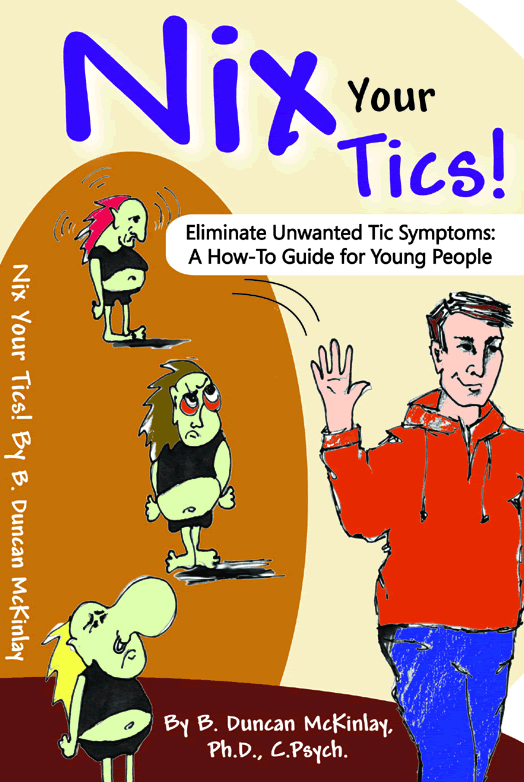Home
Nix Your Tics
Documentary
Writings
Youth Haven
Ask Dr. Dunc
Accolades
Presentations
Resources
Links
Disclaimer
Contact
If
you are a new visitor, diagnosed with a difference, please read this introduction
letter to you.
For
all other new visitors, Dr. McKinlay also has a
special introduction letter to you.

Nix Your Tics!
The Second
(E-)dition from "Life's A Twitch! Publishing". Click here to learn more.
To watch the Life's A Twitch! documentary via streaming video, click
here.
If
you would like to reprint writings from this site, please click
here.
Before
Signing the Guestbook

 
If
you wish to return to the 'Ask Dr. Dunc.' mainpage, please click
here
If
you wish to visit the 'Ask Dr. Dunc.' question archives, please
click here
|
 |
1998 - 2018 |
 |
|
Question 81: My 9 year old has just been
diagnosed with TS that seemed to have come on immediately, within
a month or two, after taking Concerta for his ADHD (which he has always
had). He has severe motor tics, some vocal and severe OCD now. My
question to you after reading your response
to question 7 where you say “an area of the brain that is
involved in inhibiting "incidental associations" made between
different motor movements (like, say, walking through a doorway and
blinking simultaneously) is not functioning properly in individuals
predisposed to TS. Therefore common actions (such as eye-blinking)
become "connected" to a great number of regular activities,
resulting in what we call tics (in this case, an eye-blinking tic).”
Doesn’t seem to make sense in my son’s case in which he
has complex motor tics such as he raises his arms up to the height
of his ears, closes his eyes, smiles and shakes his head violently.
This seems to have nothing to do with “regular activities”
of any kind. Please help me to understand this very unfortunate thing
that has happened to my child. Thank you. R., CO, USA.
Good morning
R.:
I would
suggest reading my doctorate in it's entirety rather than just response
7's marginal description of it, or at least the introduction and discussion
sections of the thesis. It can be found at www.lifesatwitch.com/phd.html.
It is a somewhat involved theory that is difficult to condense into
a short answer (which is why I only gave a brief example of how a simple
tic is formed in the response you refer to). More complex tics such
as the ones you describe can certainly be accounted for by the Incidental
Associations theory as well, but given the single example you've read
thus far I can understand your initial confusion -- I have many pronounced
tics that on the surface couldn't have been formed as simplistically
as in that example either.
When reading
the theory in full, one of the things to bear in mind is that each of
the movements you describe in your son in and of themselves are not
bizarre: each in isolation could and often do have appropriate contexts
where they would not look unusual at all. It is the firing of those
movements WITHOUT such a context, and the association of them all together,
which makes them appear strange. That's one of the keys to understanding
the neurology of TS and the development of tics -- simple tics, once
formed, can then be incidentally associated with other simple tics and
those can associate with still others in an increasingly intricate web
of connections.
Happy
reading! I hope this helps,
Dr. Dunc.
Top
of Page |